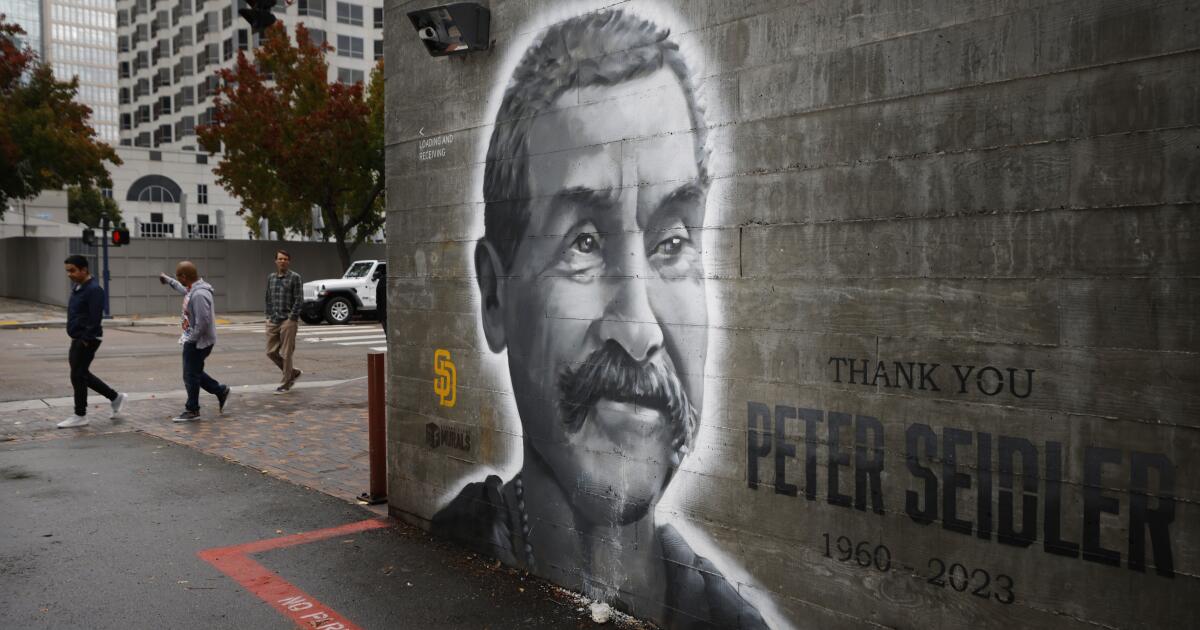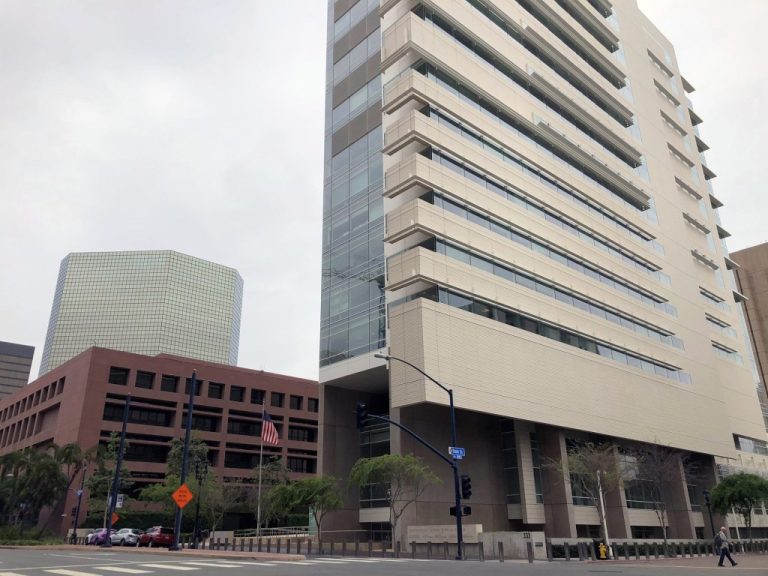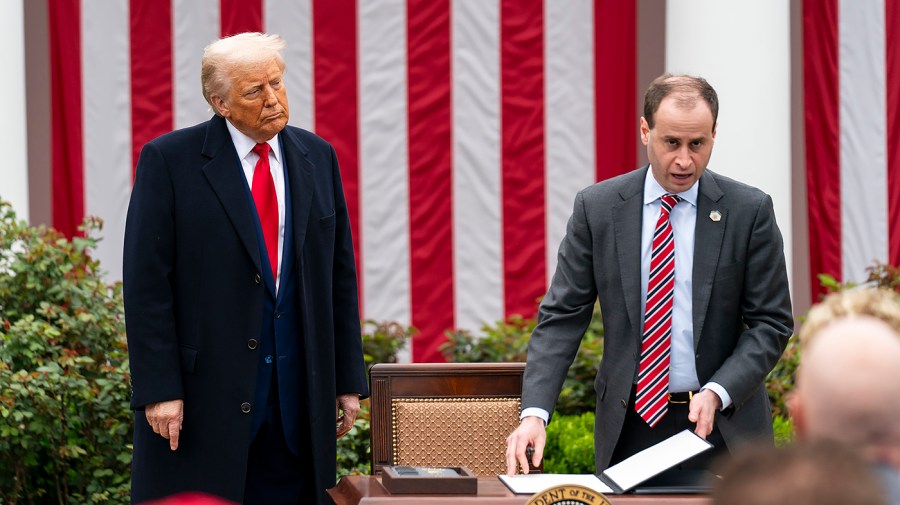

When Peter Seidler died in November, national news outlets justifiably focused on his ownership of the Padres.
The big investments. Marquee players. San Diego’s first trip to the National League Championship Series in forever.
But Seidler’s public and behind-the-scenes contributions to ending local homelessness were similarly formidable.
In interviews, fundraisers and business leaders around the region said his death left an undeniable hole amid a growing crisis. But many expressed cautious optimism about the state of philanthropy in San Diego.
“More are willing to step up with larger amounts,” said Stephen Cushman of the Cushman Foundation, before adding, “if there is an appropriate plan.”
One way to measure what local donors care about comes through the San Diego Foundation.
In the mid-2010s, giving to “housing and shelter” causes actually decreased, according to the foundation’s annual reports. For several years, the total never broke $200,000.
That changed in 2020, when contributions to the issue more than doubled to a half-million. The numbers continued rising and last year blew past the $1 million mark for the first time in nearly a decade, if not longer.
That funding also represented a larger share of the total pot.
“I think the public is starving for measurable and tangible results,” said Drew Moser, executive director of The Lucky Duck Foundation, which has become one of the county’s most prominent homelessness advocacy groups.
Moser said they’d seen a recent increase in giving, which he credited to the foundation avoiding grand pronouncements in favor of aid to specific groups, like young people and older adults.
A similarly targeted approach was adopted by county Supervisor Terra Lawson-Remer when she recently helped round up donors on behalf of residents who just ended up on the street. That effort, which combined private and government funding, was partially an acknowledgment that both were needed to tackle a multifaceted problem.
More money is not necessarily the same thing as more donors.
Donnie Dee, president and CEO of the San Diego Rescue Mission, said increased donations more than covered their expenses, yet the number of individuals chipping in was actually down.
This was especially true for “mid-level” donors who might otherwise offer a few hundred dollars, he said. “I think they’re getting crushed by the economy.”
Of those continuing to give — Dee said there were still around 24,000 — many were well versed on the issues. “Donors are concerned about what’s working and what’s not,” he added. “You don’t raise money on stories anymore, you raise money on results.”
Leaders in some cities, including New York and Los Angeles, have set up their own charitable funds, and San Diego’s newest fundraising initiative comes from Mayor Todd Gloria.
In his state of the city address earlier this month, Gloria announced the creation of “San Diegans Together Tackling Homelessness.” “I hope San Diegans who have the means to step up and help will provide some of the fuel for our efforts,” Gloria told the crowd.
An accompanying 22-page document lays out the ambitious goal of eventually bringing in $370 million, most of which would go toward building a “40 story, 400-unit complex” of affordable apartments at the site of the old central library.
There is now a button on the city’s website to donate, a process overseen by the San Diego Foundation. That group also contributed $50,000 — Gloria said a quarter-million had been raised so far — but the mayor’s office has not yet identified the other initial donors.
The first $250,000 will go toward creating new shelter beds, including at H Barracks, a soon-to-be-empty lot by the airport, according to city spokesperson Nicole Darling.
“We’ve got a good philanthropy system,” said Dan Shea, the restaurant owner who worked closely with Peter Seidler on a number of homelessness initiatives. “There are just not that many big donors out there.”
Shea said he hoped the area could learn from St. Jude, the children’s research hospital that’s long relied on small donations to bolster its multi-billion-dollar budgets.
Regardless of what happens with any individual effort, the Seidler family, at least, is not tapping out.
On Thursday, Lucky Duck confirmed that Sheel Seidler, Peter’s wife, is taking his seat on the foundation’s board and executive committee.
“It helps me stay connected to him,” she said in a statement, “and perpetuate his deep passion and commitment for aiding those in need.”





